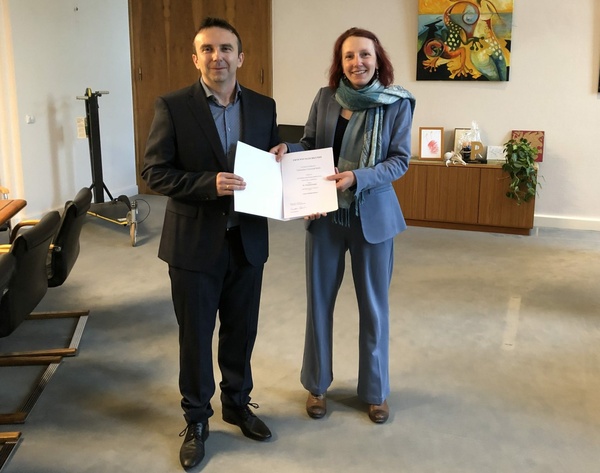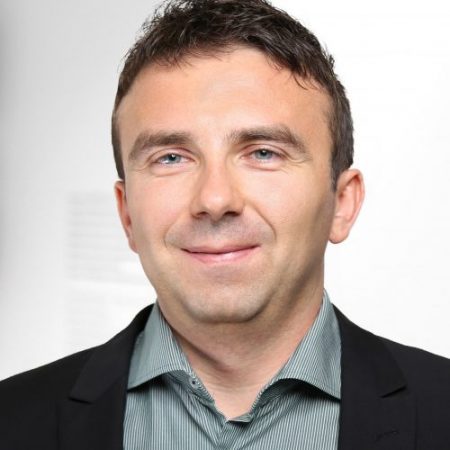New Professorship for Machine Learning and Communications
BIFOLD researcher Dr. Wojciech Samek has been appointed Professor of Machine Learning and Communications at TU Berlin with effect from 1 May 2022. Professor Samek heads the Department of Artificial Intelligence at the Fraunhofer Heinrich-Hertz-Institute.

Professor Samek – very warm congratulations on your appointment at TU Berlin. You have been involved in BIFOLD – Berlin’s AI competence center – since 2014. What connects you to BIFOLD?
“I have supported BIFOLD and its predecessor projects to the best of my abilities since the very beginning. My cooperation with BIFOLD is very important to me – as is strengthening Berlin’s role as a center of artificial intelligence (AI). I have worked very closely and successfully with BIFOLD Co-Director Professor Klaus-Robert Müller on the explainability of artificial intelligence. I have also enjoyed a successful cooperation with Professor Thomas Wiegand working at the interface between machine learning (ML) and compression. In addition to the 12 patent registrations resulting from these and other collaborative undertakings with researchers at TU Berlin, my collaboration with Thomas Wiegand has had a considerable influence on the new international MPEG-7 NNR standard on the compression of neural networks.”
What areas would you like to focus on in your future research at TU Berlin/BIFOLD?
“My goal is to further develop three areas: explainability and trustworthiness of artificial intelligence, the compression of neural networks, and so-called federated leaning. I aim to focus on the practical, methodological, and theoretical aspects of machine learning at the interface to other areas of application. The combination of machine learning and communications is something I find particularly interesting. In my research, I use explainability to improve ML models and to make them more robust. So, I am looking to move beyond purely “explaining.” My goal is to increase reliability and ultimately develop explanations based on checking mechanisms for ML models.”
How does this research complement the research work of BIFOLD and TU Berlin?
“These research areas are of great importance not only for BIFOLD with its focus on ’responsible AI’ and ‘communications’ as an area of application; they also offer a whole range of possibilities for collaboration with researchers at Faculty IV. Klaus-Robert Müller, Grégoire Montavon, and I are planning to transfer the explainability concepts we developed to other types of ML models and areas such as regression, segmentation, and clustering. Enhanced visualizations of explanations will enable us to develop more reliable and more explainable ML models for communication applications. My research will also focus on the development of enhanced compression methods for neural networks and federated learning. Examining the interaction between learning, compression, and communications is of great interest here. Overall, we can say that my research will strengthen the research profile of Faculty IV while at the same time offering very many new possibilities for cooperation at the interface between ML, information theory, signal compression, and communications.”
Do you already have an idea of what you would like to implement in teaching?
“I am really looking forward to the new challenges that teaching will bring. Within BIFOLD, I am planning a special course titled “Advanced Course on Machine Learning & Communications.” This would focus on federated learning, methods for the compression of neural networks, efficient neural architectures, and ML methods for communication applications. The lectures could also be supplemented by a lab. What I envisage is the implementation of federated learning on many networked devices. This would provide hands-on opportunities for students to learn directly about topics such as resource-saving ML, compression of neural networks, and federated learning. I would also be very interested in giving a course on explainable and trustworthy AI. A BIFOLD special course, a master’s/bachelor’s seminar, or a supplementary module to the bachelor’s course on cognitive algorithms would all provide suitable formats for this.”


